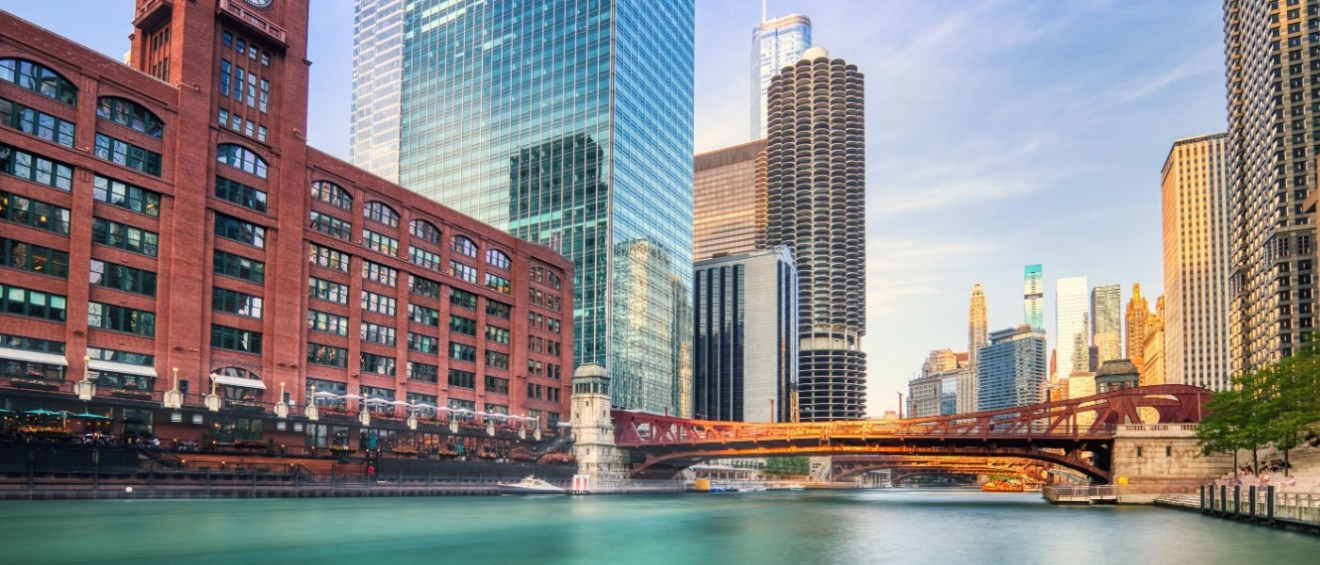Share this article:
Finding a new city to call home can be very exciting, but it can also come with its challenges, especially when it comes to managing expenses. As a renter, budgeting efficiently is one of the most important steps you can take before packing for a move.
Let’s take a closer look at Chicago. Known for its lively arts scene, diverse job opportunities and rich history, the city’s appeal is undeniable, strengthened by it ranking ninth among the most popular cities for renters in September. With that in mind, it’s crucial to know how much it would cost to live comfortably in the city, and factor in these expenses so that you’re not caught off guard while searching for apartments for rent in Chicago.
Here’s what you can expect when it comes to the cost of living in Chicago.
What is the average cost of living in Chicago?
Chicago’s median household income is $71,673. According to recent data, the average monthly rent in Chicago is $2,349, while home prices circle around $544,497. What’s more, the overall cost of living in Chicago is 24% higher than the Illinois state average and 14% higher than the national average. However, while living in one of the nation’s top cities comes with higher costs, it also provides access to abundant opportunities for jobs, businesses, and education.
At the same time, housing in Chicago is 76% more expensive than the Illinois state average, and 39% greater than the national average. Utilities, on the other hand, are about 9% less compared to the rest of the U.S. Despite these increased expenses, the Windy City remains more affordable than many major coastal hubs.

As a renter, everyday living expenses also weigh heavily when deciding to relocate. For example, groceries here are 7% more expensive than what the average American pays. Similarly, clothing costs in Chicago are about 7% higher than the U.S. average, so shopping trips might require some extra savings.
What’s more, when it comes to healthcare, such as routine check-ups or dental appointments, Chicago is 7% more expensive than the national average. Finally, other costs such as entertainment and grooming services are also 7% more expensive in Chicago. So, renters who enjoy dining out, going to the movies, or getting haircuts, will need to factor this in when budgeting for life in the city.
Is Chicago a good choice for renters?
Overall, Chicago offers renters a dynamic urban experience, but with higher costs than both the state and national averages. The city’s lively cultural scene, job opportunities, and amenities make it a popular choice, so smart budgeting is key. Renters should consider the higher housing, grocery, and healthcare costs, while noting that utilities may provide some relief.
If you’re considering making the Windy City your next home, understanding the cost of living in Chicago will help you plan effectively. With careful budgeting, you can enjoy all the perks this bustling metropolis has to offer.
Curious about the financial implications of living in other cities across the U.S.? Check out our guides for the cost of living in Detroit, cost of living in Atlanta, cost of living in Minneapolis and cost of living in Vancouver, WA.
Share this article:
Florin Petrut is a real estate writer and research analyst with RentCafe, using his experience as a social media specialist and love for storytelling to create insightful reports and studies on the rental market. With a strong interest in the renter experience, he develops data-driven resources that explore cost of living, affordable neighborhoods, and housing trends, helping renters make informed decisions about where and how they live. Florin holds a B.A. in Journalism and an M.A. in Digital Media and Game Studies.
The Ready Renter has your back
Tips, news, and research curated for renters, straight to your inbox.




Related posts
Subscribe to
The Ready Renter newsletter







